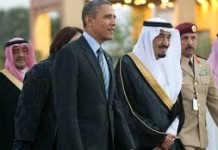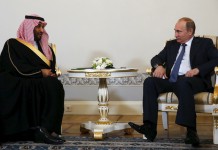Context
 PoliTact has been keeping a watchful eye on events unfolding in Kyrgyzstan, and this week’s meeting of Kyrgyz President Rosa Otunbayeva with US President Obama at the UN has proven the balance of power in Central Asia hinges on who controls Kyrgyzstan. First and foremost, it must be noted that the meeting between the two presidents is in itself a strong statement. This was no per-chance meeting, but a scheduled event which sends out a clear message that Kyrgyzstan, the small country of 5 million people, is a core part of US foreign policy, and of strategic importance to the US. This article examines the significance of US, China, and Russian tussles for influence in Kyrgyzstan.
PoliTact has been keeping a watchful eye on events unfolding in Kyrgyzstan, and this week’s meeting of Kyrgyz President Rosa Otunbayeva with US President Obama at the UN has proven the balance of power in Central Asia hinges on who controls Kyrgyzstan. First and foremost, it must be noted that the meeting between the two presidents is in itself a strong statement. This was no per-chance meeting, but a scheduled event which sends out a clear message that Kyrgyzstan, the small country of 5 million people, is a core part of US foreign policy, and of strategic importance to the US. This article examines the significance of US, China, and Russian tussles for influence in Kyrgyzstan.
Analysis
 US and Russia
US and Russia
Every message has an intended recipient, and it is all-too-clear that this meeting was conducted for the benefit of the Russians. While Russian and US relations are entering a stage of ‘mutual cooperation’ or so we are repeatedly told, the old tensions are by no means vanished and the small but important Central Asian republic is a key point of contention between the two great powers.
M K Bhadrakumar of the Asia Times Online goes so far as to call the events this week paradigm shifting, and in some aspects, this is indeed the case. The most obvious shift is that Kyrgyzstan, who has been flirting with both powers, has clearly signed on with Obama. A case in point is the cancelling of a visit by Russian Defense Minister Anatoly Serdyukov to Kyrgyzstan on Friday, as well as the pushing back of a mutual defense agreement between the two countries that was all but signed before the intervention of the US. It appears that Russia is loath to touch where Obama has clearly demarcated territory, with the newly reset US-Russia relations still a fragile creature.
Interestingly, while the US makes inroads into traditional Russian territory, it is simultaneously claiming unparalleled levels of cooperation with Russia, which Moscow has not disputed, but also not confirmed. But this places Russia, and indeed Central Asia in somewhat of a pickle, because Russia is the region’s only real security umbrella and with the resurgence of violence in Tajikistan on Sunday, this raises serious concerns, especially as other heavyweight in the region, China, is reluctant to get its feet wet in Central Asia.

 Russia and China
Russia and China
Both Russia and China are increasingly concerned over the US push into Central Asia, which is seen as a consolidation of the US military network in the region, beginning with Afghanistan and Pakistan. While Kyrgyzstan is central to the Afghan supply routes for the US, the increasing US presence in the region is also seen in terms of preparation for an uncertain future with Iran.
While the Afghan war drags on, many expect the US to establish itself as a permanent fixture there, much like in Japan and South Korea, which would make the Kyrgyz influence even more important. The US is clearly intent on dispersing any attempts by either China or Russia alone, or a combined effort, to establish a security axis in the region through Chinese centric Shanghai Cooperation Organization (SCO) or Russian influenced Collective Security Treaty Organization (CSTO).
While the politics of the region are fragile, with each great power doing the utmost on the outside to appear accommodating, for all the bowing and scraping it appears that the chips will eventually fall something like this:
Russia and China are increasingly seeking closer ties; this Sunday Russian president Dmitri Medvedev was in Beijing at the express invitation of China’s president Hu Jintao. While the US and Russian ‘reset’ is still underway, if the US encroaches further into traditional Russia-dominated territory, a chill may enter the relationship.
US and China
China and the US are at a crossroads in their relationship, with the China-Japan tensions creating a diplomatic nightmare between the two countries. China and Japan are gearing towards all-out opposition over the fishing boat incident and the US will no doubt side with natural ally Japan. This further complicates US-China politics, as the precedent will be set that the US will side with the country who hosts its bases, and so China will be even more cautious about the bases in Afghanistan and the US presence in Kyrgyzstan.
For the AfPak region, the extent of US influence and accommodation in Kyrgyzstan can either increase, or decrease its strategic importance. If the US is able to increase access to Kyrgyz bases and air space, Pakistan will be relieved of some of its importance as the main channel of supplies into Afghanistan. If the reverse is the case, if say Russia managed to convince the Kyrgyz government to oust the US, then Pakistan’s importance would treble overnight. At present this may seem unlikely, but it must be remembered that Rosa Otunbayeva is not the hot favorite in the upcoming October elections, despite obvious endorsement by the US.
Russia has one card yet to play in Kyrgyzstan, and that is ex-soviet general Felix Kulov who is a popular favorite to win the elections. Kulov has Russia’s blessing and if he gets into power the dynamics of the Central Asian republic will change rapidly. The US have also been taking a bit of a gamble in Kyrgyzstan, because the country is so deeply entrenched with Russia already: most Kyrgyz adults speak Russian, and Russian television makes up the majority of viewing in the country.
The other scenario, which may be the most likely outcome in the Kyrgyz elections, is that no party wins a clear majority and a coalition government is formed. In this case, the influence of the US and Russia and their bid for covert authority in the country will be played out in the floor of Kyrgyzstan’s parliament.
Tell Us What You Think
Feedback@politact.com



